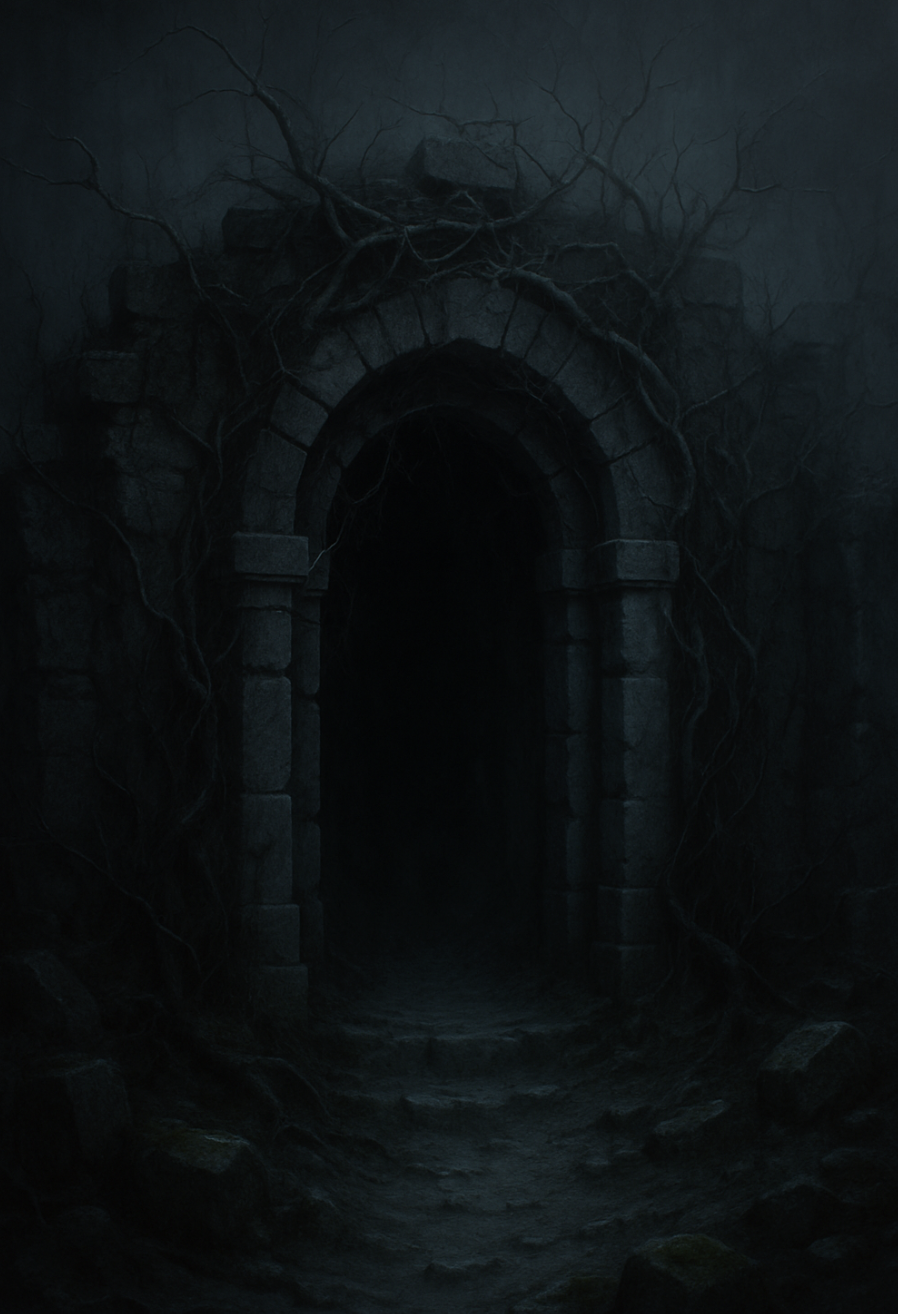Why Do We Sometimes Forget Things When We Walk Through Doorways?
You were just about to do something, and you stood up with purpose, mission in mind, a to-do item held gently at the edge of consciousness. You walked into another room…and just like that, it vanished. Gone.
I can’t even tell you how often this happens to me. I walk from the dining room into the kitchen at work and always stop dead in my tracks and go, “what did I come in here for?” then I need to walk back out to my table to look at their faces to recall what they asked me for. Maddening.
The idea, the plan, the reason, whatever it was you were thinking about, it dissolved like mist. And there you stood, disoriented, retracing your steps as if the answer had slipped through the cracks in the floorboards.
This isn’t forgetfulness, this is something stranger.
This is what the interwebs calls the doorway effect.
More Than Wood and Hinges
Crossing a threshold seems like a minor event, but to your brain, it signals something major: context shift.
That shift tells your mind, "New environment, new priorities." So your brain, ever the little efficient guy, clears the mental chalkboard to make room for what might matter in the new room. Only sometimes…what mattered was in the room behind you.
The human brain is brilliant but brutal. It prunes and prioritizes, and when a doorway interrupts the flow, it often re-sorts your cognitive deck in ways that make the past (even mere seconds ago) feel erased.
Related Read: Why Time Feels Faster As We Age
Memory and perception are slippery things, and space can warp time just as easily.
In a famous experiment by psychologist Gabriel Radvansky at the University of Notre Dame, participants moved through virtual rooms carrying objects. Memory was tested along the way. Of course, people were far more likely to forget what they were carrying after crossing a virtual doorway than when walking the same distance without a threshold.
So, it’s not about movement, it’s about the transition.
Crossing from one environment to another creates what researchers call an event boundary. Your brain chunks information into episodes, and a doorway marks the end of one scene and the beginning of another. We don’t think in continuous reels, we think in chapters.
Every space is a scene, every room, a new set. Just like in a movie, our brain packages memories with visual and spatial cues. Walk through a door, and it’s like cutting to the next shot. The previous frame is sometimes left on the editing room floor.
This is adaptive and intentional. It helps us navigate a noisy world, avoiding overload and overwhelm, but it also means that memory isn’t as durable as we want it to be, it’s conditional and contextual.
Related Read: The Science of Nostalgia: Why We Long for Summers That Never Really Existed
The past lives in fragments…stitched together by feeling and space.
A Brain Built for Movement
Think about the environments we evolved in: forests, deserts, plains, etc etc. Each shift in a new terrain came with new threats, new food sources, and new sensory data for our minds. Our brains adapted to treat environmental change as significant so they could switch back and forth a little better.
Walking into a cave needs a new sensory input. High alert, previous priorities (like hunting or gathering) could wait, now we need to see if there’s some kind of dangerous animal, poisonous spider, or other bad thing in here.
The doorway effect is sort of like a modern echo of this ancient mechanism. Today’s “cave” is the kitchen, the “forest” might be your garage, but the brain still treats each new room as a recalibration point.
You crossed into a new context, so your brain made space for the new threats, sometimes though, it just makes too much.
The doorway effect is also tied to context-dependent memory. You remember better in the place where you formed the memory, a trick I always took advantage of when studying for tests in college and sitting in the room the test would be administered. It also makes you think for a moment about how you might’ve been scoring higher than you deserved in high school or grade schools.
That’s why you often walk back into the room you started in, and immediately remember what you forgot. The couch becomes a memory trigger for you or the angle of light, the smell, the objects…all environmental cues linked to the original intent. I really just need to see my table’s face to remember they asked me for ketchup.
You didn’t lose the memory when you walked through that doorway, you just lost the context that kept it afloat.
Memory Bottleneck
Working memory (the part of your mind that holds information temporarily) is tiny. Figures, right? Most people can juggle 4 to 7 pieces of information at once, but add stress, noise, hunger, or distraction and that number shrinks fast.
Doorways introduce disruption and jostle your brain’s filing system, pushing out the most recent, often still unfiled, thoughts. In a weird way, the doorway becomes the bouncer to your working memory nightclub and sometimes, it kicks your thoughts out mid-sentence.
This phenomenon is universal.
You’re not getting dumber or being too forgetful, your brain is simply responding to change the way it was built to. Because our environments are now so fractured (notifications, multitasking, room hopping, screen hopping) this effect feels amplified. We’ve become context-switchers all day long, and each switch costs energy, attention, and memory stability.
How to Outsmart the Doorway Effect
You can’t rewire evolution. But you can outwit your own brain with a few strategies:
Say your intention out loud: “I’m going to get my wallet.” Sounds silly, but voicing the task anchors it.
Write it down before you move, paper is immune to doorways.
Go back to where the thought formed and re-expose yourself to the context. Often, the memory returns instantly.
Take a single breath at the doorway and rehearse your reason before crossing. This slows the memory loss cascade, but can take more time than you might want to commit if you’re in a hurry.
Nutrition and nootropics may help some people.
Neuro Health Memory & Focus Supplement
The Spiritual Side of Thresholds
In a lot of historical traditions, doorways are symbolic. In folklore, thresholds are liminal spaces, between here and there, and in architecture, they guide intention…framing views, channeling light.
The loss you feel when you forget why you entered a room is a small existential flicker. A miniature version of standing at a life crossroad and thinking, “Wait…what was I supposed to be doing here?”
Doorways ask us to pay attention and remind us at the same time that memory is not fixed. Our brains are constantly filtering, rewriting, and discarding whatever they deem unimportant, no matter how you feel on the matter.
What we keep (and even what we lose) is not always under conscious control.
Understanding the doorway effect isn’t just a parlor trick. It helps us design better spaces, recognize when to slow down, and have grace with our “forgetfulness”. Don’t rage at yourself or call yourself stupid for doing what your brain was built to do. Reclaim control in a fragmented world by noting the how and why this happens. Because when you know that a threshold affects your mind, you walk through it differently, with more awareness and intention. With a touch more reverence for what the moment holds, and what it might forget.
You didn’t lose your mind, you just changed rooms. With that room, your brain changed lenses, so the next time you pause in a doorway, blinking in confusion…smile. The thought is still there, it’s just waiting behind the last threshold you crossed.
Related Reads:
Your Brain Is Lying to You: Everyday Ways Your Mind Betrays You (And How to Outsmart It)
The Quiet Giants: Why Trees Are More Valuable Than Diamonds (and Always Have Been)
Can America Really Manipulate Time and Space? Unpacking the Viral Sci-Fi Claim
Are Our Emotions Stored in Water? The Quiet Science (and Wonder) Behind It
The AI That Dreams of You: When Neural Networks Begin to Hallucinate
Lost Cities and Found Feelings: Why Abandoned Places Stir the Soul

